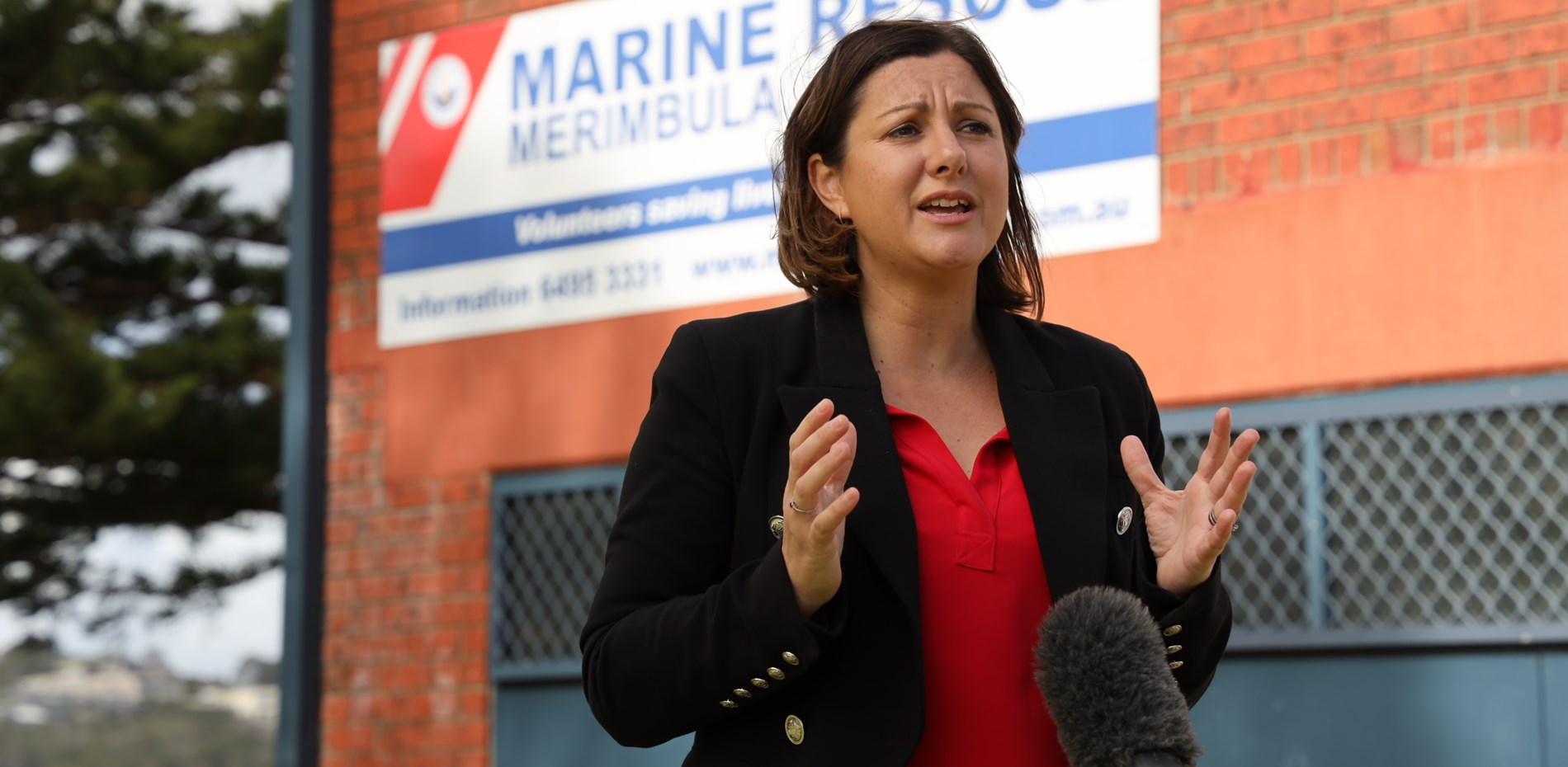RADIO INTERVIEW – ABC Riverina, Breakfast with Gemma Piali
Friday, 29 January 2021
SUBJECT: BUSHFIRE RECOVERY, TUMBATREK
GEMMA PIALI, PRESENTER: The Member for Eden-Monaro, Kristy McBain is currently travelling around the Snowy Valleys. She's been talking to locals about bushfire recovery, as well as the impact of COVID and border closures on small businesses in the region. Good morning, Kristy McBain
KRISTY MCBAIN, MEMBER FOR EDEN-MONARO: Good morning.
PIALI: What discussions have you been having with locals about the bushfire recovery process?
MCBAIN: Yeah, look, I was in Talbingo yesterday, and I guess locals are concerned about bushfire recovery and the mitigation plan for the future in terms - if we are to be hit again, those land management positions that have been in our communities, years ago, have slowly been whittled away.
We used to have state forests and national parks employees in greater numbers than are now managing our land. Over a series of years, those positions have either been made redundant or centralised. And what we know now is, we definitely need land managers in the area.
We need locals with that local knowledge so that when incidents like the Black Summer bushfires happen, we have that local knowledge on the ground.
And hopefully, we can prevent it being as wide scale as it was, because there will be more land managers available.
PIALI: How confident are you that we will be able to get more land managers?
MCBAIN: We've been calling on the New South Wales state government since January last year, to make sure that there are additional workers back in the region.
Not only is it good for land management, it's also much better for our local economies, when we have more full-time jobs within the area with that obviously comes pay packets that are then spent in our local area. So, you know, we will continue to pursue that with the state government.
PIALI: We've seen both the federal and the state government handout bushfire recovery funding for individuals, businesses and agriculture as well. So it's quite widespread. How else do you believe the government could help in the ongoing recovery process?
MCBAIN: The local economic recovery fund closed yesterday, and those projects will be will be assessed shortly. And we know that there are a number of great community based projects that have gone in, as well as council projects.
I'll very much push to make sure that we get as much funding as we can for the Snowy Valleys region, which has been hit particularly hard. And the one thing that I think Canberra needs to know is that this isn't just one incident for us. It's been a series of ongoing disasters, and that has had a toll on our community that many other communities haven't suffered.
We've obviously had an ongoing drought, there's been bushfire, floods, COVID came along - we've had two border closures. So there's been significant impacts on our local communities and on our local economy. So we need to make sure that people understand the ongoing cumulative impact of those issues, and make sure that government funding is available in regions like ours - to make sure we get over this stuff.
PIALI: And communication issues were discussed during the Royal Commission into natural disaster arrangements, do you think locals are more confident that there will be better communications if there is another fire?
MCBAIN: That was one of the big issues discussed yesterday - communication. And we know that there are far too many black spots across the region.
And we know that we have signal at sometimes of the year and then we have an influx of tourists, especially over this period, and the net network capacity drops.
So it is one thing that I said that I would continue to fight for with Telstra is better capacity in the network, and most importantly, resilience in our communications network. Far too often if we have a black out or we have a fire we lose that mains electricity connection, and our telecommunications goes down next, we just can't have that in regions that so heavily rely on communication.
PIALI: And you're also going to be involved in TumbaTrek this year. What’s happening with that?
MCBAIN: Yeah, that's right. So in a couple of weeks’ time I am off to Tumbarumba for TumbaTrek, a fantastic community based initiative. I'll be heading up there with my husband and with the Mayor of the Snowy Valleys to take part and I am really looking forward to it.
PIALI: I did it, not last year, but the year before, and yeah, walking through, particularly the landscape that was affected by the bushfires was quite, I guess, shocking, but also moving to talk to so many people who had overcome it and look to the future as well.
So, it provides quite a good platform for discussion and community to come together as well. What do you hope to get out of the experience?
MCBAIN: Look, it'll be my first time doing TumbTrek so I'm really excited about it. But as you said, our landscape has dramatically changed over the last couple of years. And, you know, it is quite sobering, driving through some of the region and still seeing the impacts of bushfire so heavily on our landscapes.
So, you know, it will be a sobering day I think, but, you know, it's also then capped off with the Arbour Festival taking place out at the arboretum, so I am looking forward to both of those events.
PIALI: Kristy McBain thank you so much for your time this morning.
MCBAIN: Thank you.
Media contact: Ian Campbell, phone 0417 482 171



